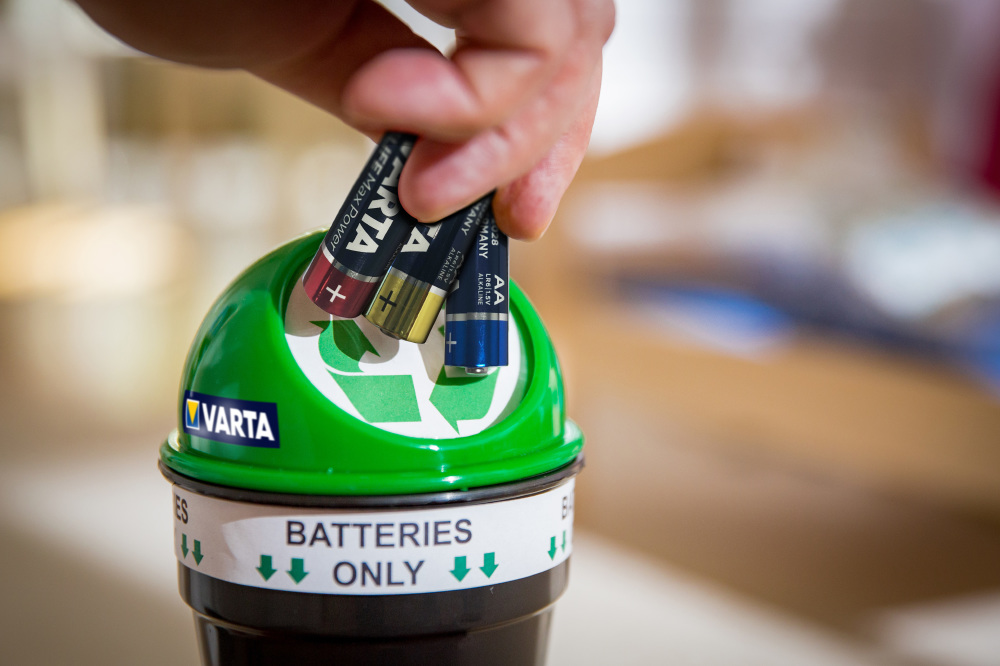Batteries are powering the majority of our technology, from smart phones to fire alarms and children’s toys, and whilst they are well known for being a clean source of energy, it is vital that they are disposed of correctly.

How do you dispose of yours?
New research from VARTA, Germany’s no.1 battery brand, has revealed that there is an estimated 189 million redundant batteries across the UK, with the average Brit hoarding four used batteries, highlighting a significant problem when it comes to how many people are opting to recycle their used batteries.
So what do Brits do once their batteries have run out? Less than half (48%) take used batteries to a battery bank, just under four in ten (39%) throw them in the bin and 15% have a drawer which their used batteries call home.
Gadget Show presenter and tech enthusiast, Craig Charles, said: “Batteries are a fantastic, clean source of energy. They are the hidden power that makes the things they go in work and come to life, however I was shocked to find out how many people are simply throwing their batteries in the bin.
“With new technology constantly emerging, and a rise in demand for smart entertainment products, the need for batteries is only going to increase. It is crucial that people are educated properly in how to correctly dispose of their batteries.”
Across the UK, Newcastle came out as the city that is least likely to recycle its household batteries, with 50% admitting to throwing them in the bin, followed by Manchester (47%) and Belfast (45%). Liverpool is the least likely (26%).
Top 10 UK cities that are most likely to throw their household batteries in the bin
1. Newcastle (50%)2. Manchester (47%)
3. Belfast (45%)
4. Plymouth (45%)
5. Birmingham (41%)
6. London (41%)
7. Leeds (39%)
8. Edinburgh (38%)
9. Norwich (37%)
10. Sheffield (37%)
Mona Chan, Marketing Manager from VARTA Batteries, commented: “The research highlights a serious need for people to do more when it comes to safely disposing of their batteries, in an environmentally friendly way.
“The process for recycling batteries includes recovering the raw materials they are compiled of and using them again. The materials can be used to produce further batteries, but the individual elements also have a variety of different uses. Metals like nickel and steel can be repurposed in metal plating, and gypsum taken from the acid can even be used in agriculture and as a filler for items such as plasterboard.”
Battery recycle points can be found across the UK, at dedicated recycling centres and at many different supermarkets.
For more information on recycling and battery disposal, please visit: https://www.varta-consumer.com/en/company/environment-sustainibility
Tagged in Recycling

